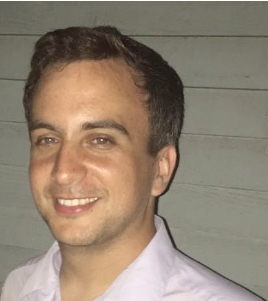Study finds private schoolers express anti-Semitism, intolerance at lower rates than public schoolers
The Anti-Defamation League (ADL) and other secular Jewish groups are taking a stand against school vouchers. Given that the explicit purpose of the ADL is to fight anti-Semitism and other forms of bigotry, they are ostensibly weighing in on this issue because they believe that there is a relationship between public or private schooling and bigotry.
They are correct.
I recently collaborated with Jay Greene, head of the Department of Education Reform at the University of Arkansas, to observe whether private school-educated adults are likely to espouse anti-Semitic beliefs after controlling for a variety of background characteristics.
To examine whether private school-educated adults and public school-educated adults differ in their attitudes toward Jews, we conducted a large survey of a nationally representative sample of more than 1,500 adults in the United States. Subjects were asked to provide details on the type of school they attended each year between first and 12th grades, including whether the school was public or private, whether it was religious or secular and whether it was affiliated with a particular religious institution. We also adapted a series of measures used by the ADL to gauge people’s anti-Semitism.
We found that there is, in fact, a relationship, but it is not the one the ADL fears: Private school attendance is associated with a decrease in anti-Semitic attitudes.
To illustrate this point, we have used their responses to 11 anti-Semitic questions (e.g. “Jews control the media” or “Jews only care about themselves”) to place each individual on a 5-point scale, with 1 being the most anti-Semitic and 5 being the least. Public school educated adults registered an average score of 3.78 on this scale, while private school-educated adults scored 4.11. When controlling for background characteristics, the score for public school-educated adults remains the same while private school-educated adults register an average score of 4.01.
This finding does not come as a surprise to those of us who study school choice. Rather, it squares with previous research exploring the relationship between choice schools and civic values, including work spearheaded by Dr. Greene, which found that private school attendance was associated with increased tolerance among public school adults and our colleague Patrick Wolf, who observed the same relationship in New York City.
Our methodology does not allow us to parse out why private schools might produce less bigoted adults. In truth we cannot be certain that there is an effect, as it is impossible to control for everything that distinguishes public school educated adults from private school educated adults. However, thinking critically, private schools should be better at promoting tolerance.
As we note in our article published in the Journal of School Choice, private school teachers can lead meaningful discussions about sensitive topics, whereas public schools are constrained by rigid neutrality and are particularly sensitive to matters of religion. Moreover, Catholic schools, which constitute the majority of private schools nationally and within our dataset, have some unique advantages. These institutions promote social justice and inclusivity as virtues of good character, and where public school attendance is determined by residence and highly segregated on socioeconomic lines, Catholic schools, especially those that participate in school choice programs, are diverse in terms of race, social class and even religion.
A simpler explanation is that differences in attitudes reflect differences in quality. Most rigorous empirical research indicates that private schools deliver better academic outcomes, undoubtedly because competing in a marketplace produces an existential incentive for quality production. Private schools might simply be better at teaching tolerance of Jews because they are forced to excel in carrying out the activities we expect of a school, which includes promoting tolerance.
I would like to believe that private schools are particularly adept at promoting inclusion and restraining anti-Semitism, and perhaps they are. But in truth, it seems public schools have set a low bar.
In my hometown of Marblehead, Massachusetts, African-American students are bussed into schools from Boston through the benefit of an interdistrict bussing program, METCO. This program allows Marblehead and similar districts to express platitudes like, “We celebrate diversity.” A look around the high school cafeteria says otherwise: African-American students are overwhelmingly confined to one table. Proponents of traditional public schools proclaiming that diversity counts are simply counting.
For the town’s large share of Jewish residents, the public school system also does not feel like a paragon of unity and inclusion. A proposal by the school committee and superintendent to hold school on the high holidays was met with righteous indignation and a highly publicized debate. In the year that followed, there were three separate incidents of swastikas being drawn in Marblehead public schools, and another event in which a swastika made from pennies in a chemistry lab was circulated on Snapchat. Jewish students raised $8,000 to hire the Anti-Defamation League of New England to train teachers on combating bigotry and insensitivity, but the damage was done.
Marblehead is a single data point that by itself proves nothing. But what transpired there, or rather what did not transpire there, is emblematic of the intrinsic failures of a public school monopoly that does not demand market accountability. Indeed, enrollment was scarcely affected, if at all.
Private schools are not a panacea to prevent socially undesirable behavior. Neither are public schools. The number of private school-educated adults who expressed indifference toward anti-Semitic remarks is troubling, even if it is appreciably better than public school-educated adults. But the research and basic economic principles on monopolies suggest that if the ADL wants to spend less time training teachers in Marblehead and elsewhere, they ought to reconsider their opposition to school vouchers.
*Opinions expressed by our guest bloggers are their own and do not necessarily reflect those of EdChoice.




